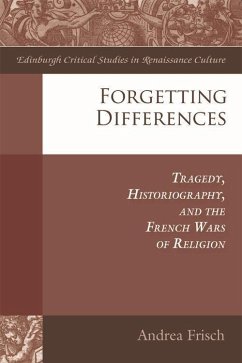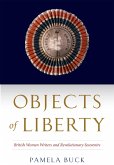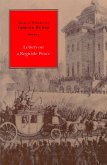"This is a brilliant and provocative book, upending a good deal of received wisdom concerning the roots of French neoclassicism, the history of tragedy and the emergence of modern historiography. Combining deep historical scholarship with enviable hermeneutic flair, it not only enlivens debates about the historical trajectory and character of early modern French literary and intellectual culture but also opens new avenues for discussion in future." Christopher Braider, Professor of French and Comparative Literature, University of Colorado Boulder Examines the impact of the royal politics of amnesia on tragedy and national historiography in France, 1560-1630 This study argues that the political and legislative process of forgetting internal differences, undertaken in France after the civil wars of the sixteenth century, leads to subtle yet fundamental shifts in the broader conception of the relationship between readers or spectators on the one hand, and the matter of history on the other. These shifts, occasioned by the desire for communal reconciliation and generally associated with an increasingly modern sensibility, will nonetheless prove useful to the ideologies of cultural and political absolutism. By juxtaposing representations of the French civil war past as they appear (and frequently overlap) in historiography and tragedy from 1550-1630, Andrea Frisch tracks changes in the ways in which history and tragedy sought to "move" readers throughout the period of the wars and in their wake. The book aims to illuminate some of the ways in which the experience of the wars of religion, as registered in tragedy and historiography, contributed to a restructuring of the ever-vital relationship between emotion and politics, and thereby to historicize the very concept of "esmouvoir". Andrea Frisch is Associate Professor of French and Comparative Literature at the University of Maryland. Cover design by Cathy Sprent Cover images: from Megale chymia, vel magna alchymia, by Leonard Thurneisser, 1583 [EUP logo] www.euppublishing.com
Hinweis: Dieser Artikel kann nur an eine deutsche Lieferadresse ausgeliefert werden.
Hinweis: Dieser Artikel kann nur an eine deutsche Lieferadresse ausgeliefert werden.








